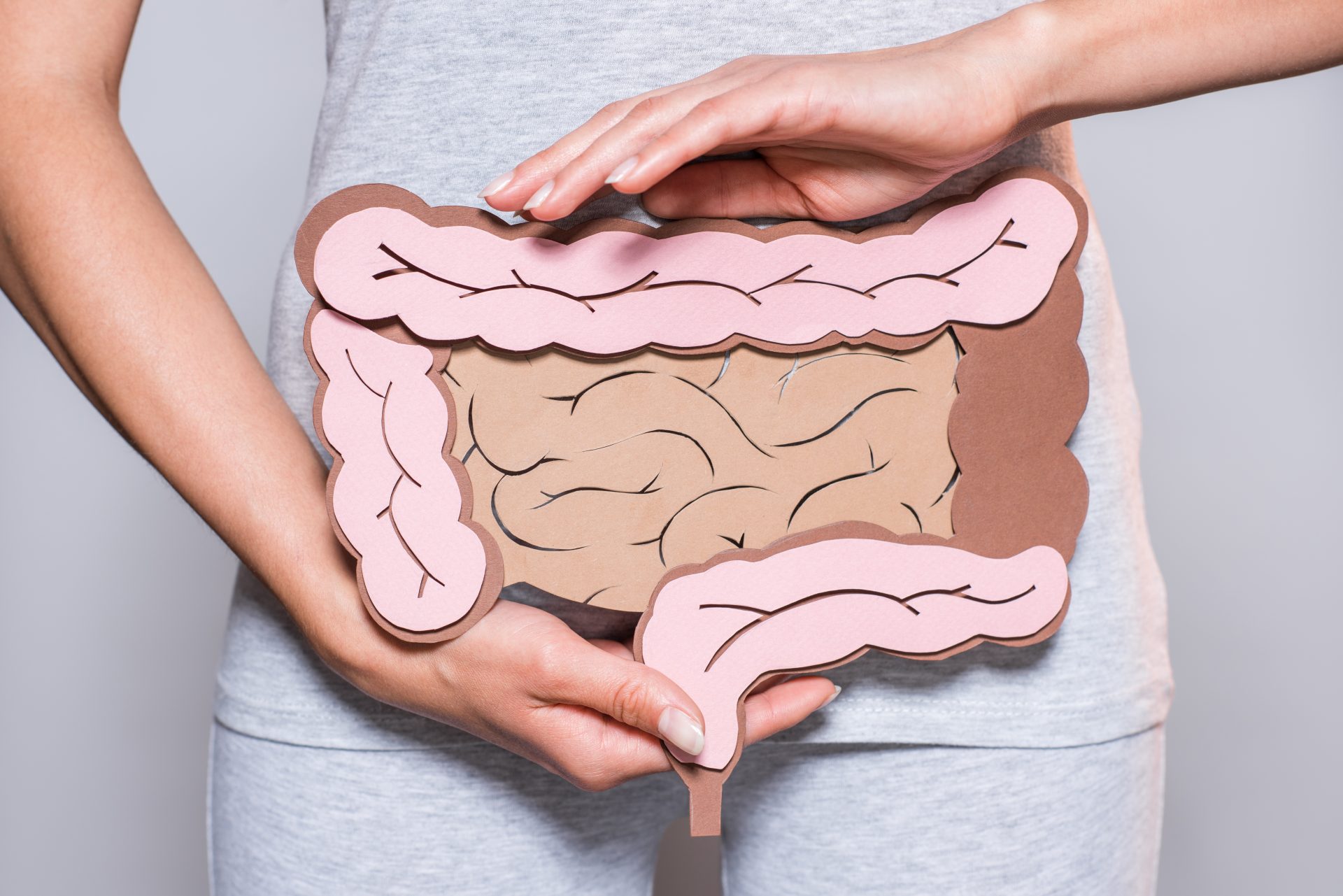Microscopic colitis: what to know about the gut condition women are 700% more likely to experience
Women are 700% more likely to experience microscopic colitis than men. So what do we need to know about the gut condition?
When something is wrong with our gut, we usually know about it. Symptoms are often uncomfortable and a recent study suggested that millions of adults are missing work, social events and holidays because of gut issues.
But not all conditions are understood equally, and while we may be familiar with the likes of irritable bowel syndrome (IBS), Crohn’s disease and ulcerative colitis, there are others that have a smaller field of research but effects that are just as debilitating.
One of these is microscopic colitis, the inflammation of the large intestine (aka the bowel), where common symptoms include frequent diarrhoea, stomach pain, fatigue and weight loss. The condition is known as “microscopic” colitis because physicians usually can’t see the inflammation without a microscope, unlike the ulcerative version.
According to charity Guts UK, at least 1 in 1,000 people are thought to have microscopic colitis in the UK with 17,000 new cases being diagnosed each year, but the real number could be a lot higher because it’s often underreported and misdiagnosed.
What’s most telling, though, is that women are 700% more likely to have the condition than men.
You may also like
Gut health and sleep: is your poor gut health stopping you from sleeping well?
The causes of microscopic colitis and the reason it affects women disproportionately are still unclear. As it is a relatively new disease, first described in 1976, it has led to a presumption that it is environmental as opposed to genetic factors that are responsible for its occurrence.
“We still don’t fully understand what causes microscopic colitis or why women are disproportionately affected,” explains Professor Shaji Sebastian, consultant gastroenterologist at Hull University Teaching Hospitals NHS Trust.
“What we do know is that the condition can be very debilitating, but with the right diagnosis, it can also be treatable for most people. Many treated for microscopic colitis respond well to a course of gut-specific steroids or with symptom-relieving medicines,” he notes.
You may also like
Gut health tips: does overeating before bed lead to bloating and poor gut health?
Misdiagnosis is also a problem. Guts UK explains that one in three patients with microscopic colitis were initially incorrectly diagnosed with IBS, leading them to wait longer for effective treatment.
“Thousands of people across the country are quite literally housebound with symptoms of microscopic colitis and we now know that the rates are increasing and are likely to grow further as the population ages,” says Julie Harrington, Guts UK’s CEO.
“Further research is desperately needed to identify risk factors and find out why women are far more likely to suffer from microscopic colitis so we can move to a place where prevention and faster diagnosis is possible.”
You may also like
Does drinking aloe vera juice really improve gut health or is it just another TikTok trend?

Victoria, a 48-year-old from London, was diagnosed with microscopic colitis in 2019. “I had been fine, but then woke up one morning with diarrhoea that wouldn’t go away,” she tells Stylist.
After googling her symptoms, she visited her GP, who advised her to take Immodium to slow down the bowel movements.
However the symptoms continued, and it was after losing two stone in six weeks that she attended a private gastroenterologist appointment.
“They confirmed with a biopsy that it was microscopic colitis, as it cannot be seen with a colonoscopy like ulcerative colitis can.”
You may also like
How to improve your gut health: why aren’t young women doing something about chronic bloating?
Victoria started treatment, and after her symptoms cleared up, she was put into remission. However, during the pandemic, when her family came under a lot of stress, the symptoms started to flare up again.
Researchers believe that while stress isn’t thought to cause ulcerative or microscopic colitis, it can be responsible for triggering a flare-up or exacerbating the symptoms.
“I woke up in the morning and the diarrhoea started,” Victoria shares. “And it didn’t stop. I didn’t leave my house from January until June.”

The experience left Victoria with “really high anxiety” and “practical agoraphobia”. “It’s kind of a half-life,” she says.
“I’ve got great friends that understand that if we arrange to meet up, I might have to call half an hour before to cancel because everything’s kicked off and I’m stuck in the bathroom. That being said, I now don’t let it stop me. I wear my adult nappies when I need to and you’d never know that I was wearing one.”
You may also like
How gut health affects our emotions and mood
Victoria urges anybody with concerns about their gut health to go to the doctor, regardless of any feelings of embarrassment or awkwardness.
“They’ve really heard it all before. Whether it’s a GP or a gastroenterologist, you’re likely going to need medical intervention in order to go into remission.”
She also says that Facebook support groups for people with microscopic colitis have been a great help with understanding the condition.
“Whether you just want to vent or hear other people’s stories, it’s really good to have a community around you. The people who have been through it are the people that can understand you the best.”
“Because many people develop microscopic colitis aged between 50 and 70, some women can put symptoms down to the menopause,” adds Professor Sebastian.
“But if you’re experiencing persistent watery diarrhoea, stomach pain, incontinence or urgency, fatigue or unexplained weight loss then don’t suffer in silence; make an appointment to see your GP to discuss your symptoms.”
Guts UK offers advice, information and support for gut health conditions.
Images: Getty
Source: Read Full Article
